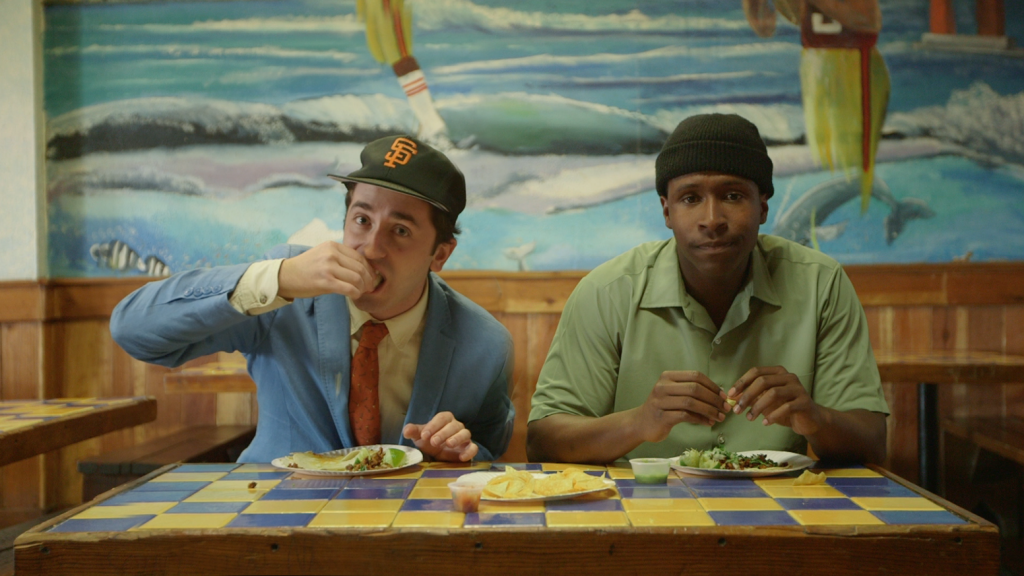With the Golden Globes behind us and the Oscar nominations in, ’tis the season when cinephiles bemoan the overlooked gems of the year. Fortunately, these obscure little treasures are increasingly less obscure in the age of streaming, and anyone with Amazon Prime or Hulu accounts will have a selection of jewels at his or her fingertips. Here are just a few places to begin the hunt.
The Last Black Man in San Francisco: For those who enjoy luxuriating in the spell of soulful cinema, The Last Black Man in San Francisco is an irresistible incantation. With its lush cinematography, stirring score, and operatic street scenes, Joe Talbot’s debut feature is a thing to behold. Talbot’s screenplay, cowritten with his longtime friend and leading man Jimmie Fails, is a meditation on home, history, and the vagaries of the capitalist urban economy. As the characters seek to reclaim a Paradise lost, the camera can’t help but capture the glory ever-present and all around. (Amazon Prime)
The Souvenir: Pieced together in hard cuts, like fragments of memory butting against each other, Joanna Hogg’s newest film is a portrait of the artist as a young woman. The writer-director conjures her formative years as a film student in 1980s London, a time when she struggled to find her artistic voice while simultaneously making herself small in a toxic relationship with a derelict lover. With its formal rigor and stately pace, The Souvenir is a properly English specimen, but its delicate handling of burgeoning female identity and its eye toward class and privilege translate richly across the pond. (Amazon Prime)
Transit: Christian Petzold’s Transit is a maze of reversals and frustrations built on a bedrock of bureaucracy and xenophobic hostility. It is a fable for our time taken from another. The director adapted his screenplay from Anna Seghers’s 1944 novel of the same name about a man and woman who attempt to flee Nazi-occupied France but find themselves stalled in a proliferation of visas and transit papers. The language and situations are the same, but the time is our own. The beguiling alchemy of Petzold’s ahistoricism lends his film a dream-like quality, at times opaque and elusive, yet always sharp with emotional distress and unsettling familiarity. (Amazon Prime)
The Beach Bum: Writer/director Harmony Korine revels in a candy-colored cinema of exuberance. Like incinerating a boatload of cash, The Beach Bum blows up every conceivable narrative device in search of all the highs and none of the lows. The golden rule of screenwriting is that conflict makes a movie, but Korine’s Moondog, played by Matthew McConaughey at his most inebriated, gives that golden rule a golden shower. He won’t let anything harsh his buzz. Every time the film takes a turn toward conventional story structure, Moondog makes a mad dash to the next thrill, the next excitement, whatever little piece of joy he can wrench from this world. On this hell-bent bender, McConaughey is joined by a troupe of fellow fun-loving miscreants, including Isla Fisher, Jonah Hill, Zach Efron, Martin Lawrence, and the inimitable Snoop Dogg. (Hulu)
Wild Rose: Jessie Buckley is a force of nature and one of the most promising up-and-coming actors of her generation. Even a somewhat paint-by-numbers script can’t cage her in. In Wild Rose, this Scottish girl wants nothing more than a career in Nashville as a country singer, but her life in Glasgow, anchored by a criminal record and two young kids with an absentee father, makes that dream feel a million miles away. Her journey from reality to dream is punctuated by several knockout musical performances from Buckley, each effectively eliciting that emotional frisson only possible when music and cinema come together in perfect harmony. (Hulu)
The Nightingale: Jennifer Kent’s films are not for the faint of heart. They’re surgical procedures into the dark viscera of the human condition. The Nightingale, Kent’s follow-up to her acclaimed debut, The Babadook (2014), is an unstinting portrait of the atrocities of colonialism, a state-vehicle for masculine violence against women and the indigenous. Our protagonist, an Irish convict in British-held Tasmania, answers the brutal treatment she receives with her own righteous bloodlust, and Kent never shies from this woman’s need for revenge, no matter how grisly the outcome. (Hulu)

